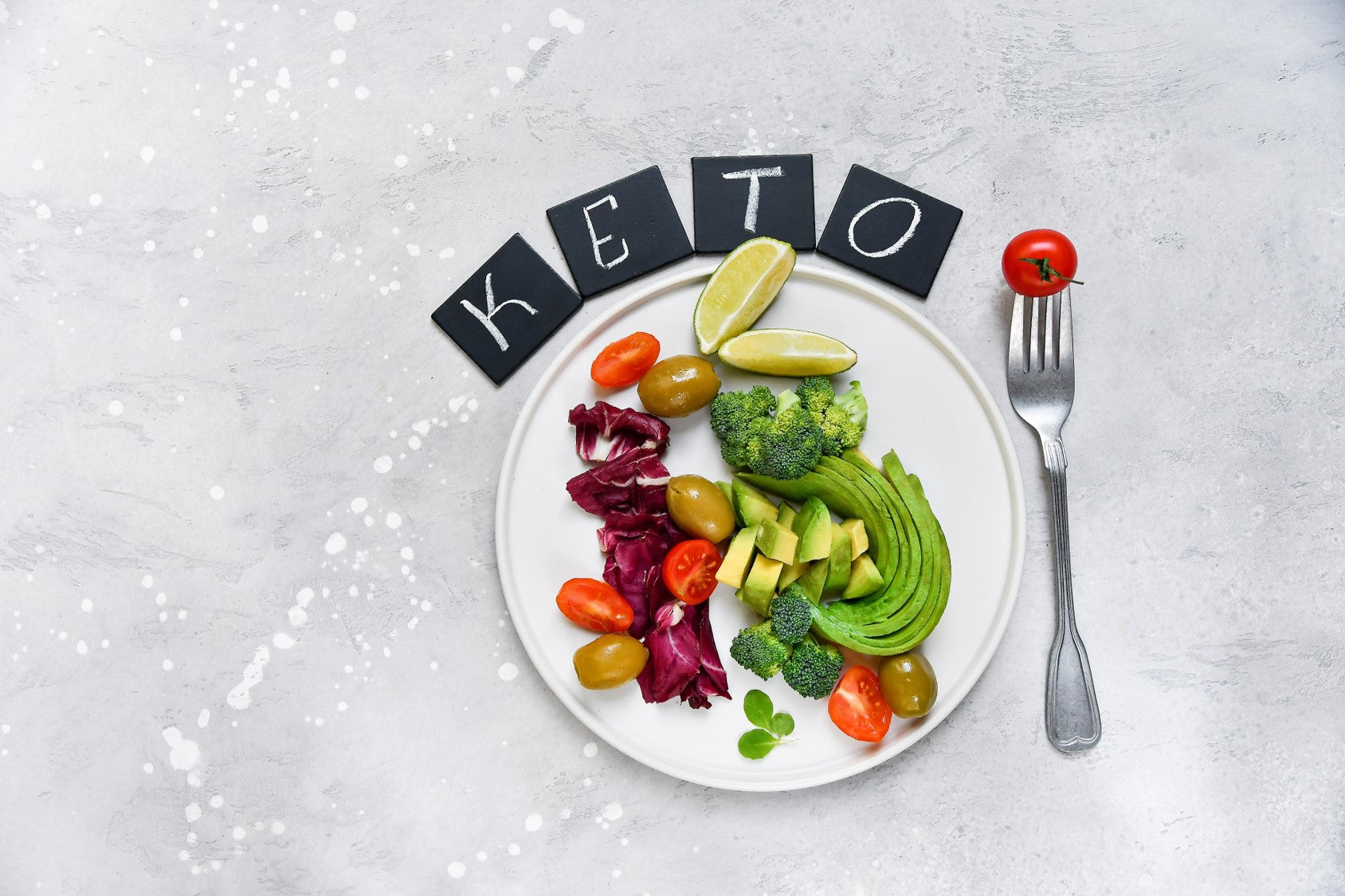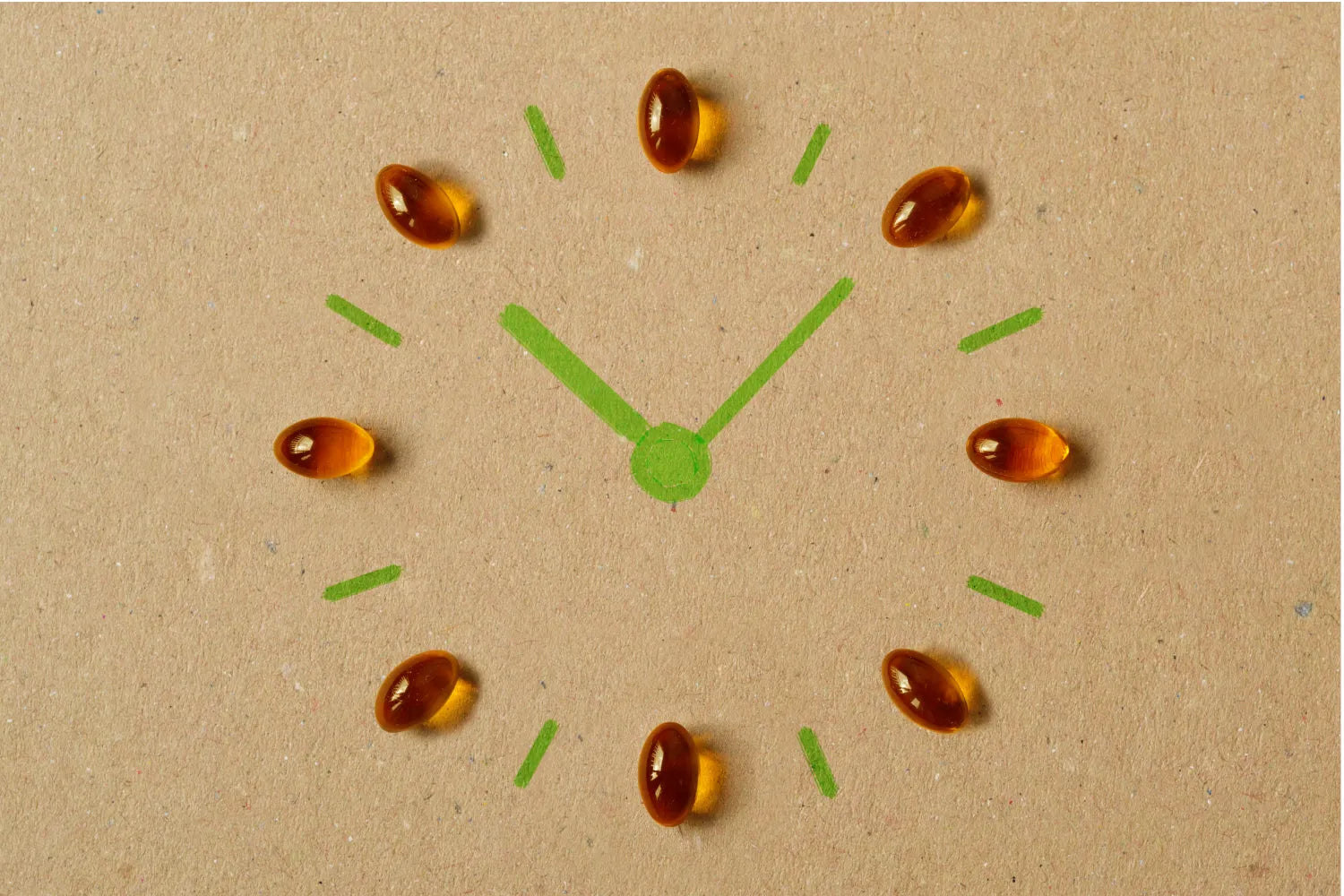
Dr. Eric Venn-Watson’s Highlights
- Maintaining a keto diet while vegetarian is difficult, but can be done with the help of yogurts, nut butters, and keto-friendly vegetables like avocado.
- The vegetarian keto diet can support heart health, help with weight maintenance, and protect against metabolic syndrome.
- A supplement like fatty15 can help you get on track without fully committing the vegetarian keto diet by providing you with C15:0, a fatty acid that’s good for cell health.
If you’ve been advised by your doctor to lighten up on meat, or if you’ve simply found it undesirable to include as much meat in your diet, you might be considering adhering to a vegetarian lifestyle diet.
Becoming a vegetarian is more of a lifestyle change rather than a quick-fix diet that you will only use to lose weight or achieve certain numbers on a blood test. In contrast, the ketosis diet or “keto diet” is a diet that may be beneficial for weight loss in lieu of long term maintenance. While you can certainly maintain ketosis for a while, it may not be advisable to stay in ketosis for long periods of time.
When you hear the word “keto” you likely automatically think "low-carb". And when you think low-carb, you likely think high fat and protein. Which can make a vegetarian keto diet seem somewhat impossible. How can you possibly get enough protein and fat in your diet when you aren’t eating meat? Additionally, how will you survive if you are restricting carbs - isn’t that all you have left?
While adhering to a keto diet as a vegetarian is markedly more difficult, it is possible as long as you pay close attention to your macronutrient intake to ensure you are getting the right portions of fats, proteins, and carbohydrates per day. It’s also important to make sure you avoid certain dietary pitfalls that can occur when following this diet. Let’s look a bit more closely at both diets and how intertwining them can be beneficial.
What is the Vegetarian Diet?
A vegetarian diet is one that does not include seafood, poultry, and meat products. A vegetarian diet, therefore, can include animal byproducts, like milk and eggs, but there are different types of vegetarian diets that include and exclude certain things.
- Vegans. Vegans do not eat any animal products or byproducts. This means no dairy, eggs, fish, or honey. This is the most stringent form of vegetarianism.
- Lacto vegetarians. Lacto vegetarians eat dairy, but exclude eggs, meat, poultry, and fish.
- Lacto-ovo vegetarians. Lacto-ovo vegetarians eat dairy and eggs, but avoid meat, poultry, and fish. This is the most popular form of vegetarianism in western culture.
- Pescatarians. Pescatarians eat seafood, dairy, and eggs, but avoid meat and poultry. This type of diet is considered semi-vegetarian, and as such the risks of deficiencies compared to diets of meat eaters is relatively low.
It may seem like there aren’t many options for getting the protein you need in your diet if you decide to become vegetarian, but that isn’t true. Essentially, all protein comes from plants; even the protein you eat from meat. The animal gets their protein from a plant, you get the protein from the animal.
It may also be surprising that even meat eaters get the majority of their protein from plant sources. Plant proteins are complete proteins, meaning they have a complete amino acid composition. Amino acids are essential in practically every process in our body, and nine of them that are essential have to come from our food.
Therefore, eating a plant-based diet doesn’t mean you’ll struggle to get enough protein.
What is the Keto Diet?
The ketogenic diet, or “keto diet,” is a diet that is extremely low in carbohydrates and high in fat.
Over time, this diet places your body in a state of ketosis, which is a metabolic state in which your body produces ketones from fat and uses them for energy instead of using carbohydrates for energy. When this happens, your body becomes efficient at burning fat for fuel instead of carbohydrates.
The keto diet has become increasingly popular as a means of weight loss and maintenance, and as a way to use food as medicine and support overall health and wellness. The keto diet has been studied extensively, especially as it relates to supporting the overall health and wellness of individuals who have type 2 diabetes and metabolic syndrome.
If, however, your goal is to remain vegetarian and attempt keto at the same time, you’ll need to be very diligent in getting enough fat, especially healthy fat, into your diet.
How Do You Eat Properly While on a Vegetarian Keto Diet?
The most important thing to remember when following a vegetarian keto diet is to pay close attention to your macronutrient intake.
Macronutrients refer to fats, proteins, and carbohydrates. In order for your body to achieve and maintain ketosis (the point in a ketogenic diet when your body begins to burn fat for fuel) you’ll need to keep your carbohydrates low, and your fat intake high. You’ll also need to ensure you’re getting enough protein to keep healthy and continue building muscle.
Here are some helpful hints that can make your vegetarian keto diet a success.
- Restrict the carbohydrates. In order to get into ketosis and maintain it, you’ll have to restrict your carbohydrate intake to 20 grams or less per day. This is definitely going to limit some of your vegetarian protein sources, like beans, wheat gluten. You’ll also have to avoid some starchy vegetables and carb-laden fruits.
- Eat protein with every meal. If you’re a lacto-ovo vegetarian, this will be a bit easier for you, as you’ll be able to include eggs. Other options are greek yogurt, hemp seeds, cottage cheese, and nut butters (check for added sugars), and tofu.
- Eat keto-friendly vegetables, like kale, avocado, cauliflower, spinach, and broccoli.
- Ensure you’re getting enough fat. If you aren’t getting enough fat through your foods, you’ll need to supplement. Roughly, your total caloric intake as a keto vegetarian would consist of 70%-80% fat.
Elevate your cells. Elevate your self.
What Are the Benefits of the Vegetarian Keto Diet?
Adhering to a diet this strict isn’t without benefit. Here are some of the benefits you may glean from following a vegetarian keto diet.
- Weight loss/healthy weight maintenance. Studies on the effectiveness of a ketogenic diet for weight loss are numerous. Switching to a vegetarian diet may also provide an initial weight loss, but this usually stabilizes over time.
- Healthy heart support. Vegetarian diets help support overall heart health, ensuring your heart functions properly and stays strong.
- Protection against metabolic syndrome. High cholesterol, excess belly fat, and high blood sugar are all hallmarks of metabolic syndrome. A vegetarian keto diet supports your body’s metabolism and helps it function properly.
If you aren’t sure that a vegetarian keto diet is for you, there’s another way to reap some similar benefits.
Fatty15 is a supplement that contains C15:0 (also called pentadecanoic acid), an odd-chain saturated fat that science supports may be the first essential fatty acid to be discovered in 90 years.†
Fatty15 is the first and only pure C15:0 fatty acid supplement that is keto- and vegan-friendly, allowing you to reap the benefits of this compound without limitations due to any dietary restrictions. Additionally, many food sources of C15:0 also contain much higher levels of even-chain saturated fatty acids (C16:0), which are types of saturated fats that have been associated with negative health effects.
C15:0 is a good fat that supports your body at a cellular level.*† Going directly into your cells, C15:0 helps support your cell membranes by armoring them and keeping them strong. C15:0 also helps support mitochondrial function, so your powerhouses in your cells can keep powering them, and in turn, power you. Through this effect in your adipose tissue, C15:0 can also support ketogenic states. C15:0 is an overall cellular health helper, giving your cells what they need to age more healthfully and keep you feeling younger, longer.*†
So, while a vegetarian keto diet can be massively beneficial if you have the discipline to stick to it, taking a supplement like fatty15 to benefit your health at a cellular level is an easy way to start getting your keto- and vegan-friendly diet and health on track.*†
Sources:
https://www.ncbi.nlm.nih.gov/pmc/articles/PMC3967195/
https://pubmed.ncbi.nlm.nih.gov/23988511/
https://www.ncbi.nlm.nih.gov/pmc/articles/PMC2633336/
https://www.sciencedirect.com/science/article/pii/S2665902619300056#bib0020

Eric Venn-Watson M.D.
CEO, Co-Founder
Senior Scientist, Co-Founder
Eric is a physician, U.S. Navy veteran, and Co-founder and COO of Seraphina Therapeutics. Eric served over 25 years as a Navy and Marine Corps physician, working with the special forces community to improve their health and fitness. Seraphina Therapeutics is a health and wellness company dedicated to advancing global health through the discovery of essential fatty acids and micronutrient therapeutics.
You May Also Like...
Cellular Health Supplements: The Importance of C15
Cellular health has flown into the spotlight recently, but if you’re confused about it, chances are you probably aren’t taking care of your cells as best as you can. Cellular health refers to the health and function of every...
When Is the Best Time To Take Omega-3?
Tired of tasting those fishy burps? Find out if taking your omega-3 supplement at a different time of day could help you avoid them.


